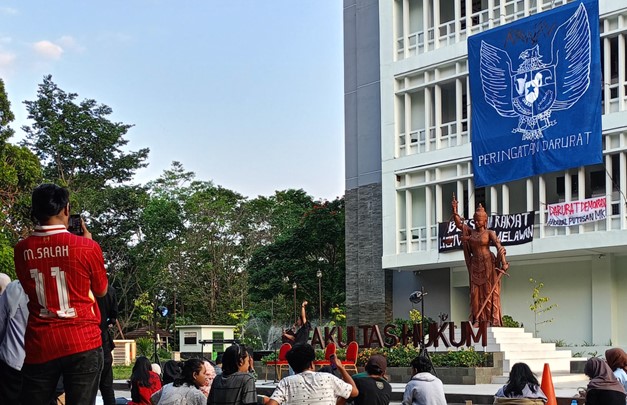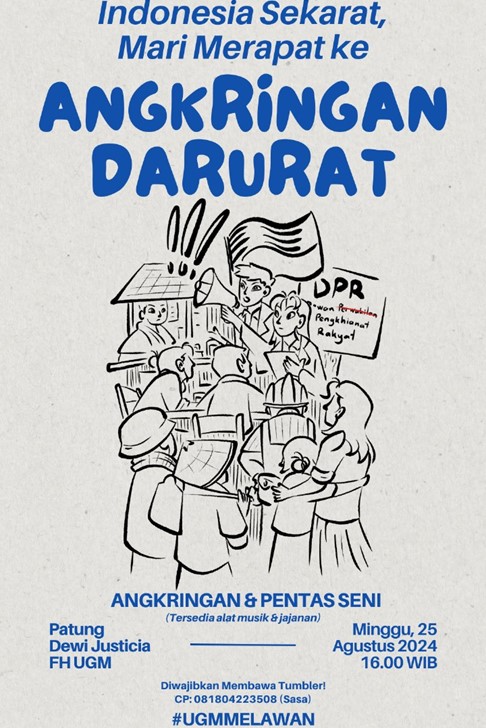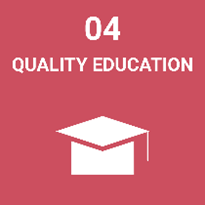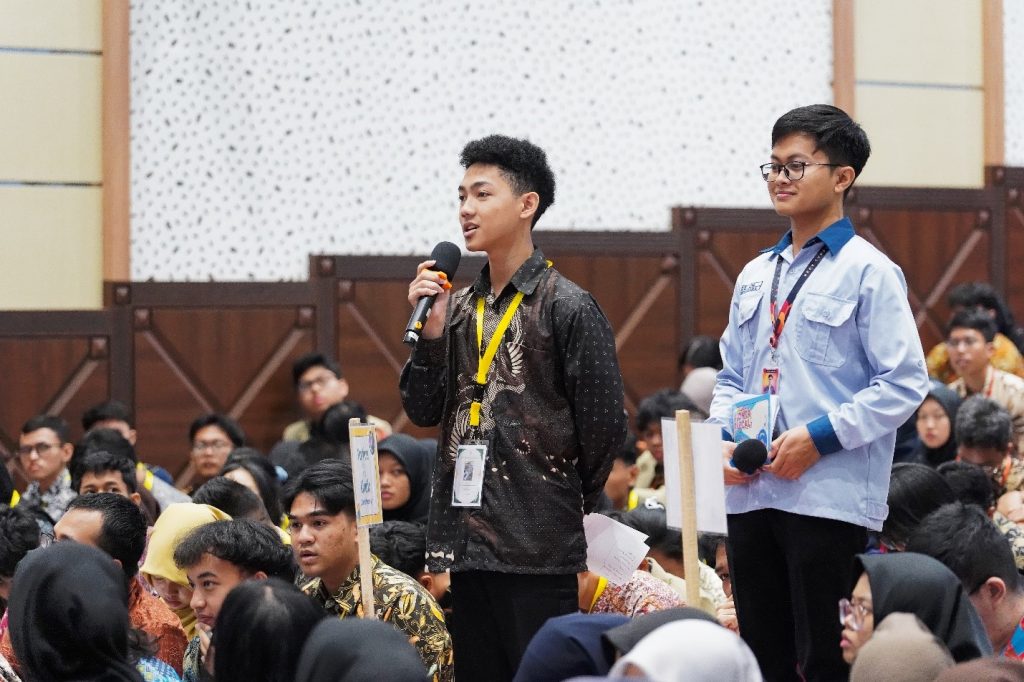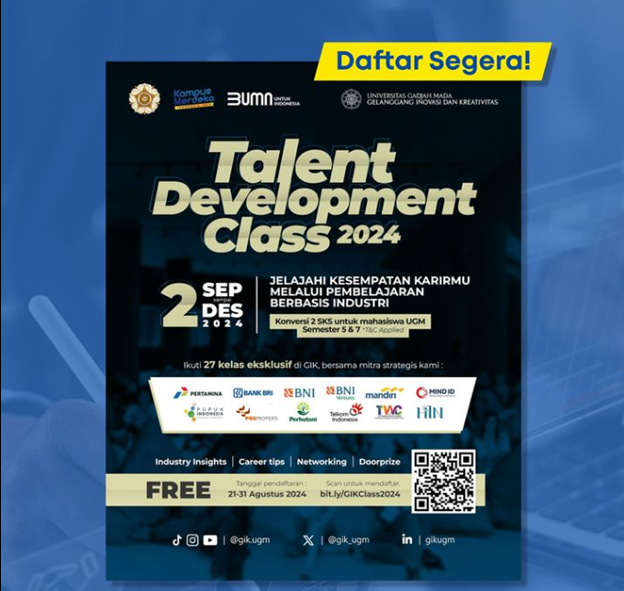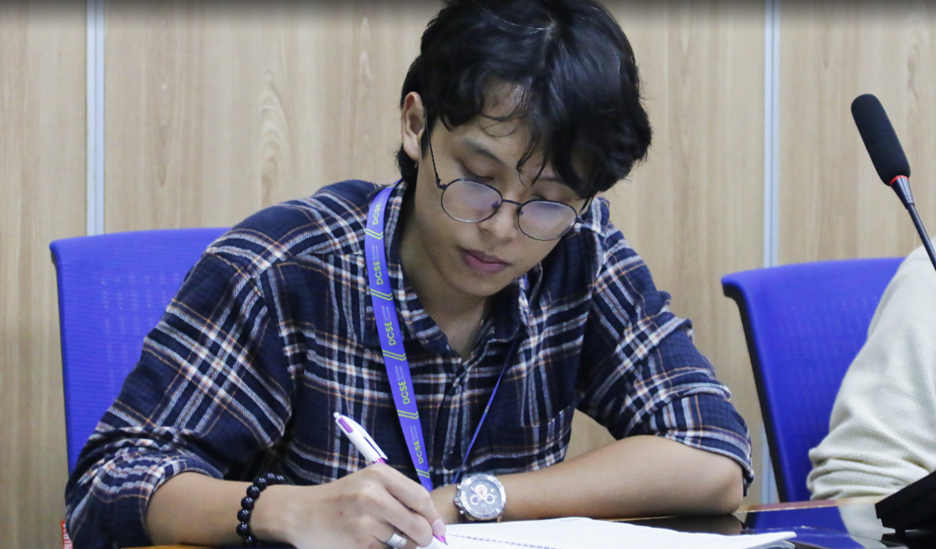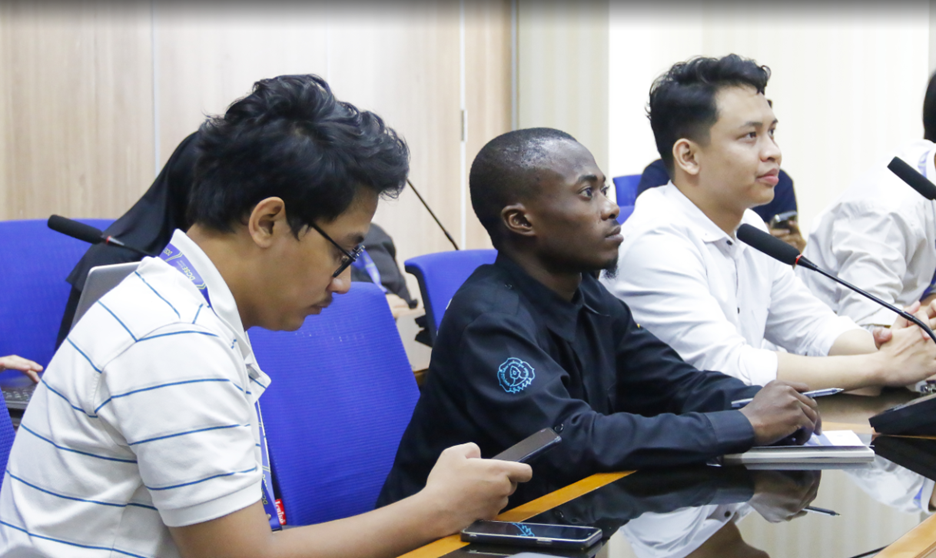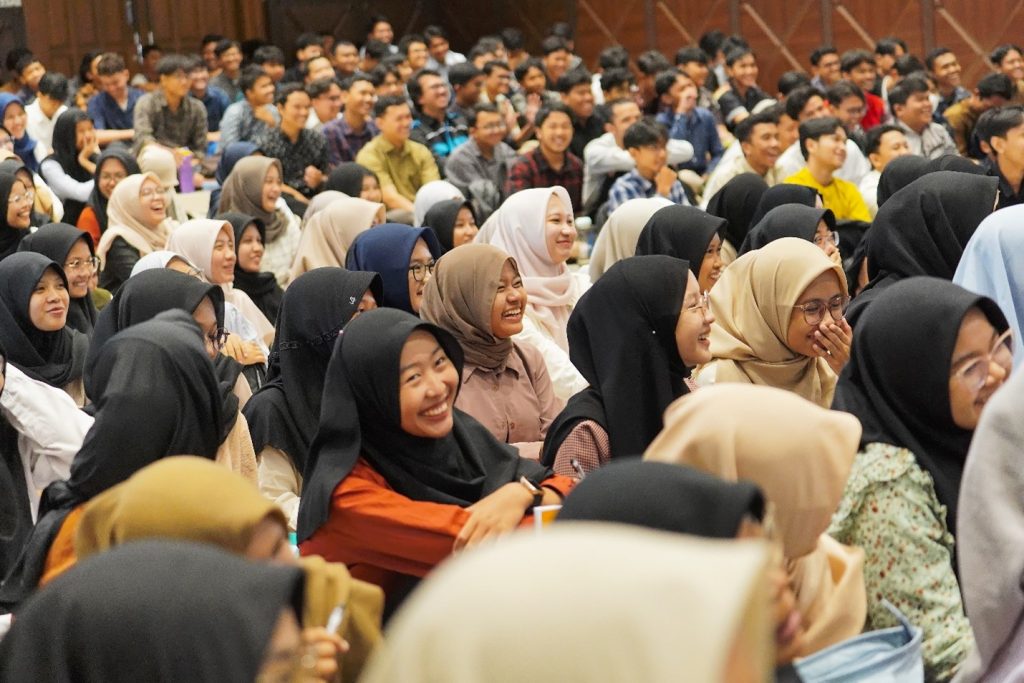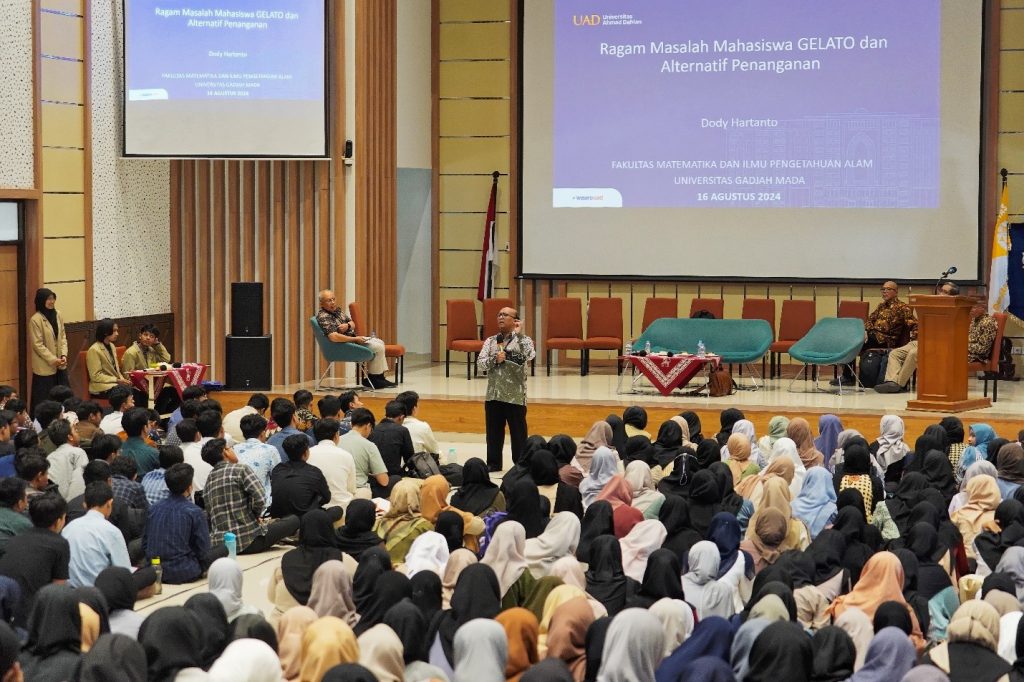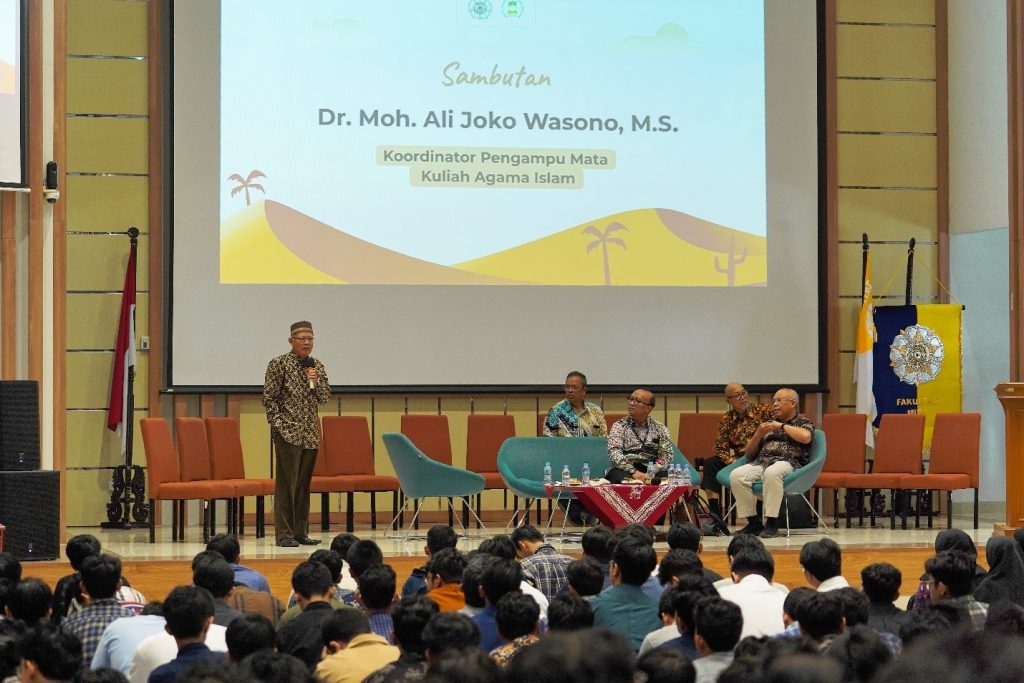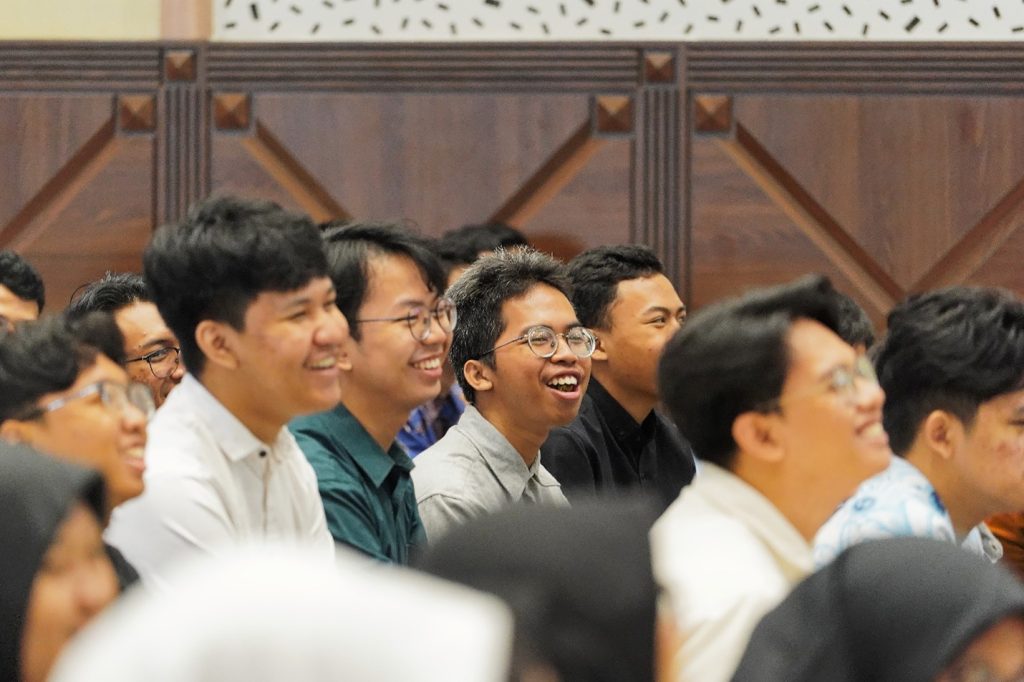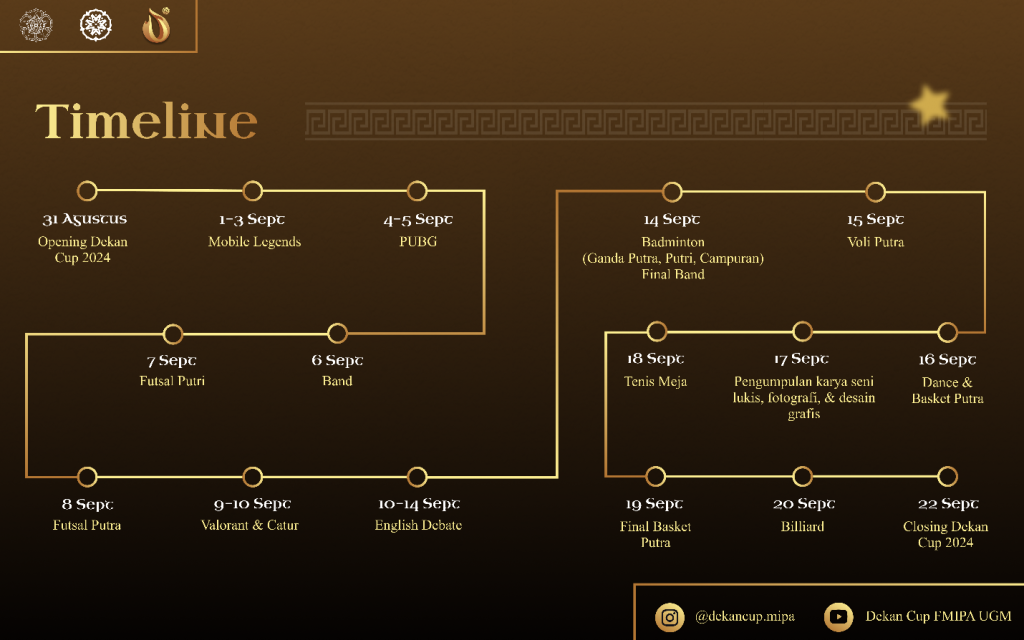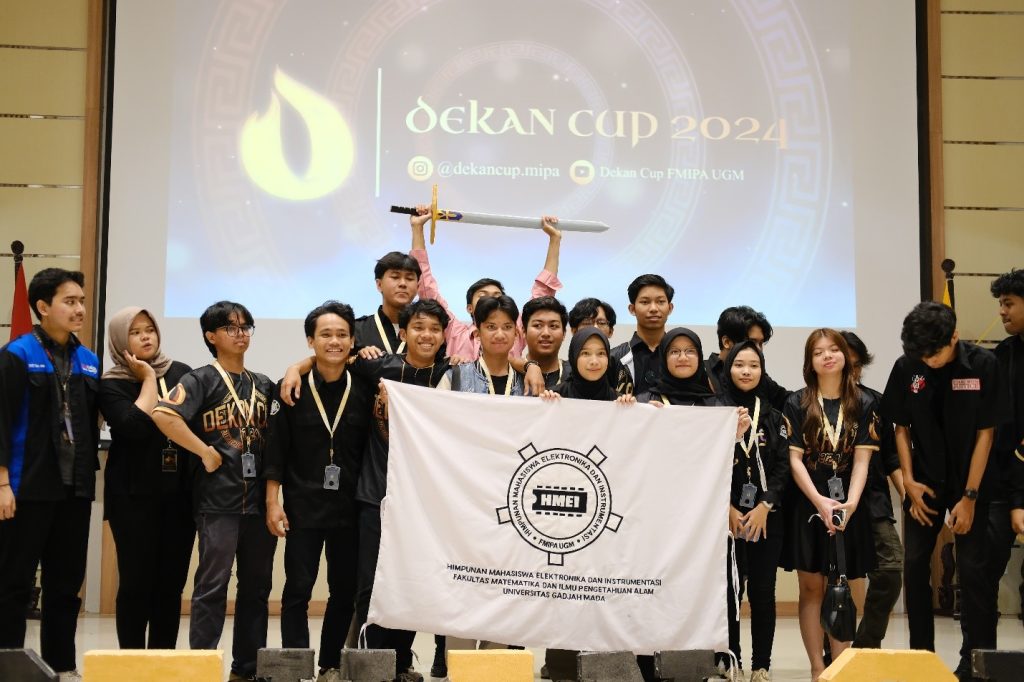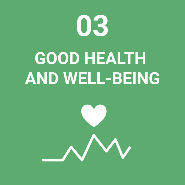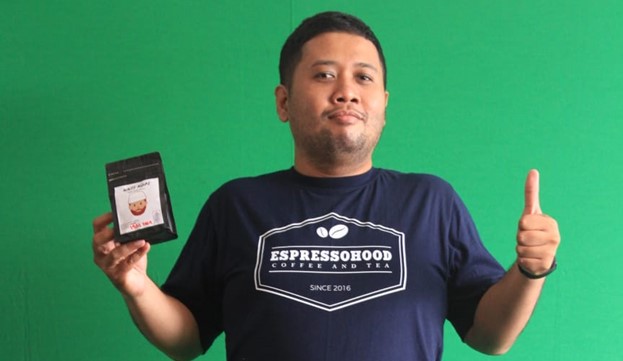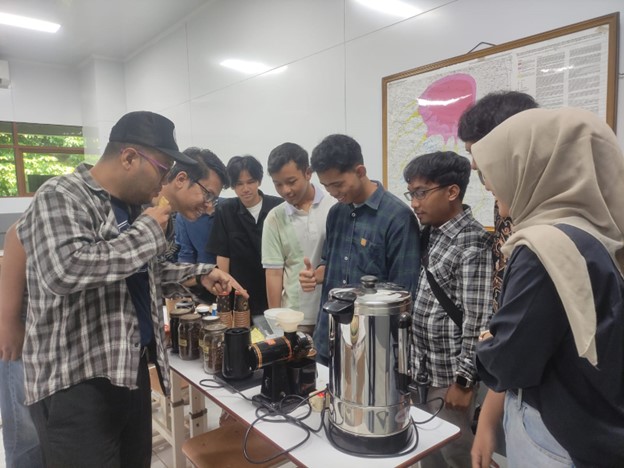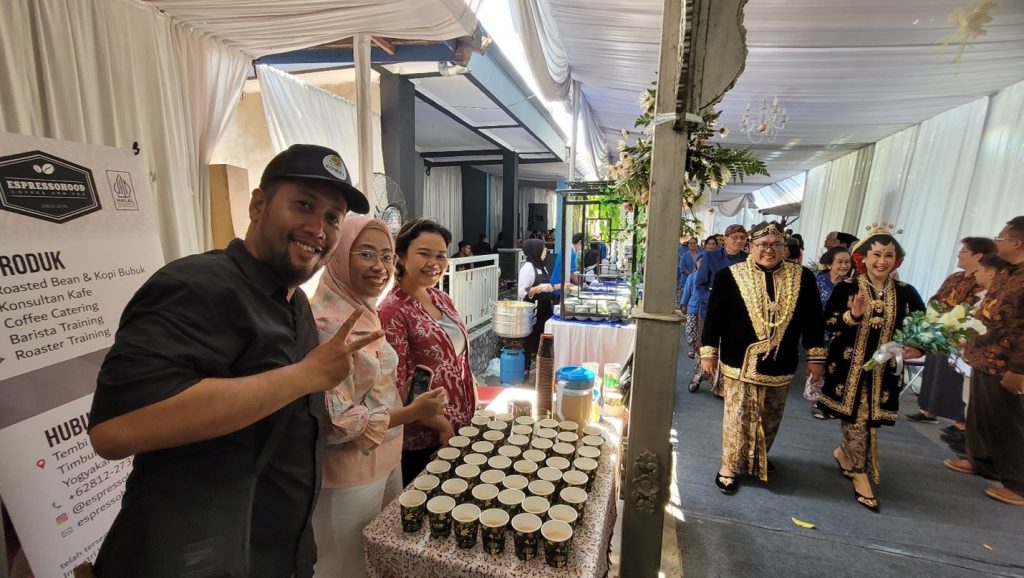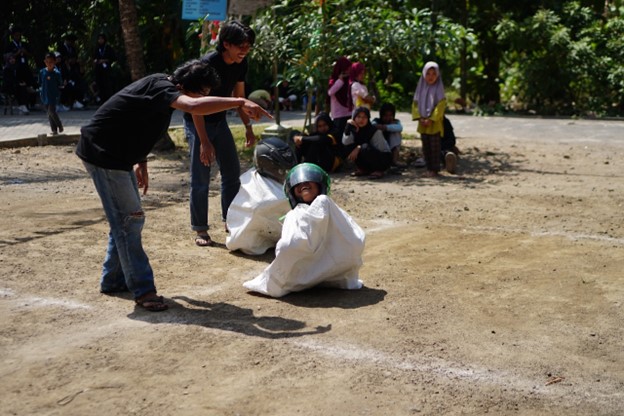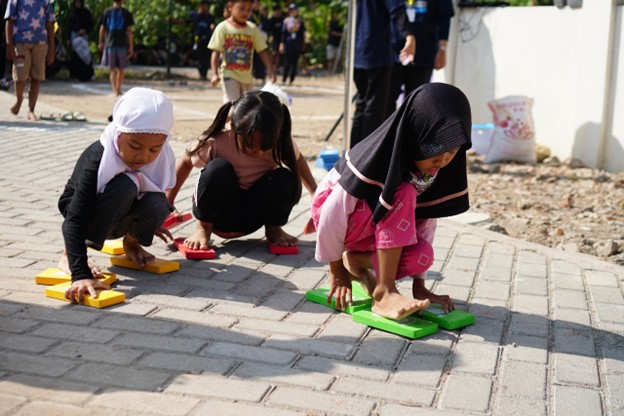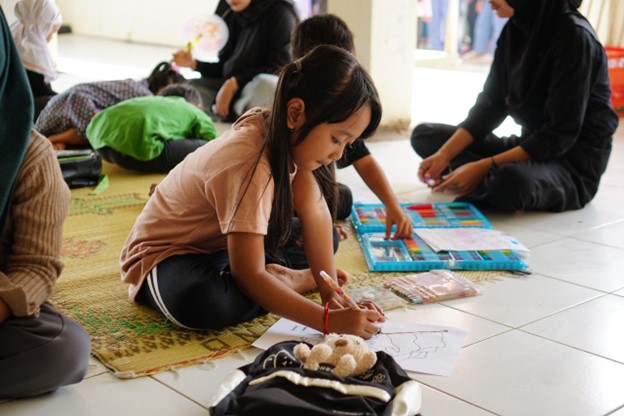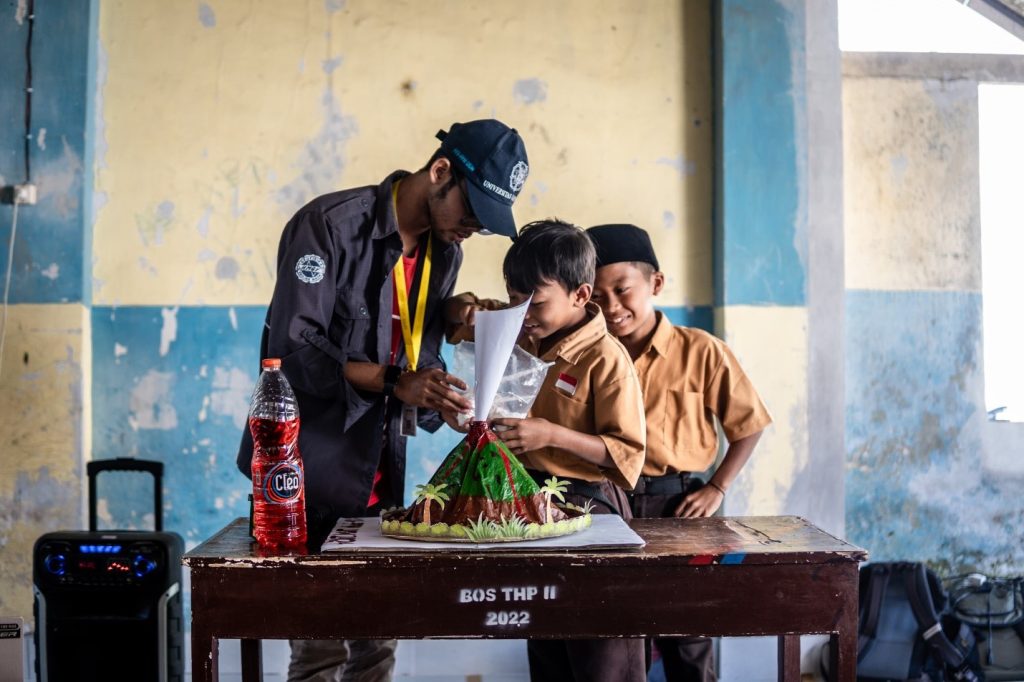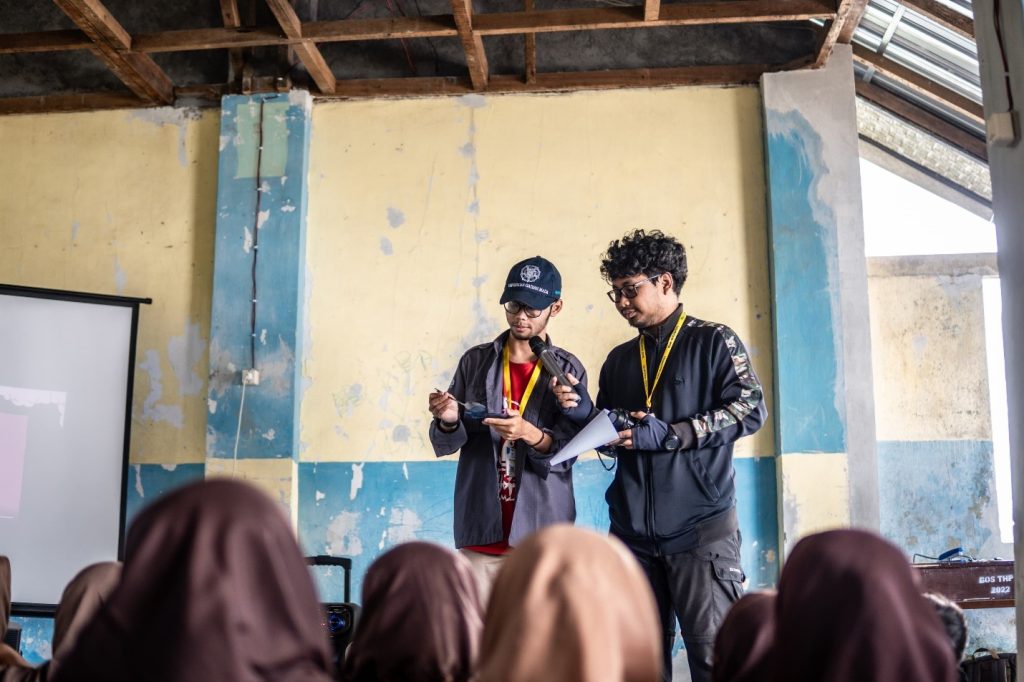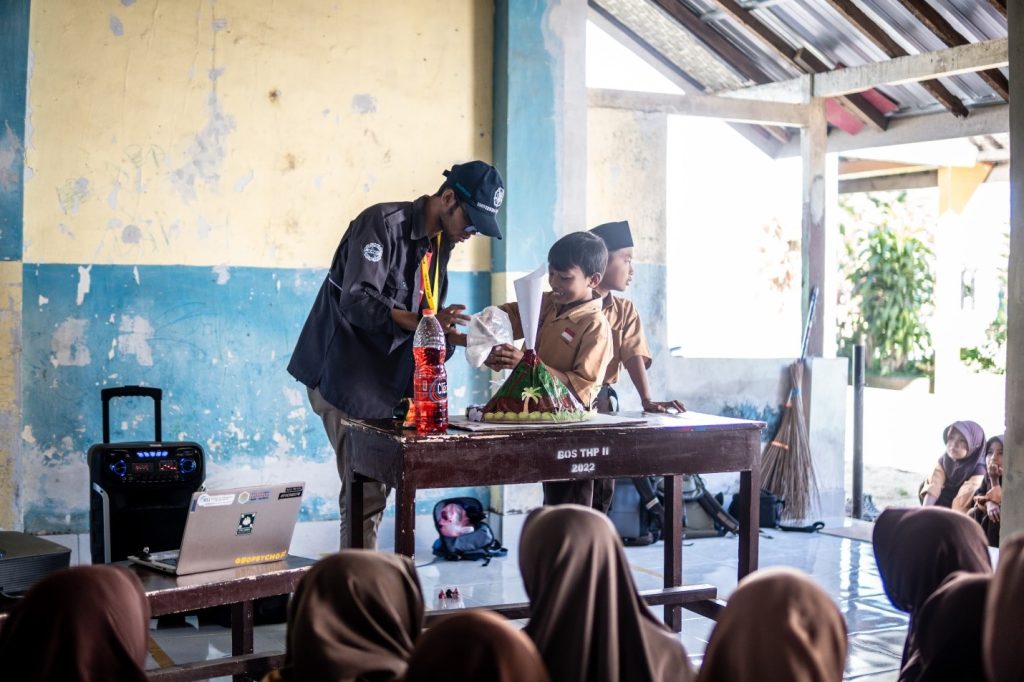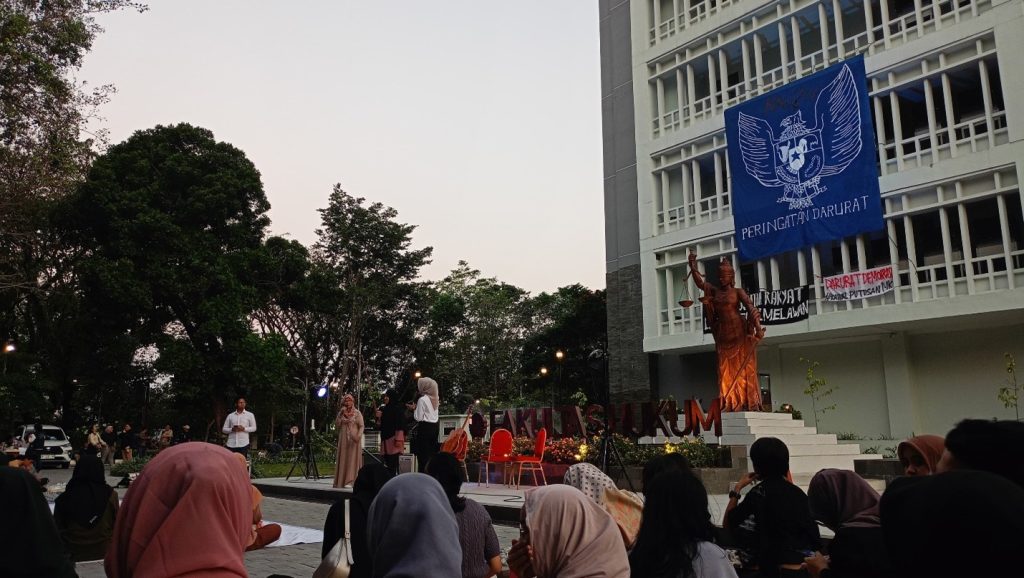
Presiden BEM FMIPA UGM Ikuti Angkringan Darurat: Tingkatkan Kesadaran Darurat Demokrasi
Guntur, selaku Presiden BEM FMIPA UGM turut mengikuti kolaborasi aksi yang diselenggarakan oleh tim independent inisiasi Fakultas Hukum UGM bersama dengan mahasiswa dan dosen. Acara tersebut diselenggarakan di Patung Dewi Justicia Fakultas Hukum UGM pada hari Minggu, 25 Agustus 2024. Dengan membawa isu demokrasi di Indonesia, acara dikemas dengan tema Angkringan Darurat.
“Angkringan Darurat sebagai wadah diskusi untuk mengedukasi mahasiswa fakultas lain dan peserta lain akan pentingnya masalah darurat demokrasi yang berdampak bagi kesejahteraan mereka semua. Acara dengan bungkus santai dengan ruang pentas seni bebas diisi oleh partisipan. Dengan target utama mahasiswa UGM (seluruh fakultas) dan luar UGM (kampus, organisasi, dan komunitas lain) untuk mencapai satu pemahaman yang sama,” papar Naya selaku tim independent FH UGM.
“Acara yang keren banget! Di sini kita dipertontonkan bagaimana seni menjadi alat kritik yang indah. Lagu dan puisinya menyimpan banyak pesan,” papar Guntur.
Dalam hal ini, Guntur turut mengajak rekan-rekan BEM FMIPA lainnya untuk turut hadir dan bergabung dalam acara tersebut. Dalam rangka mengawal tegaknya demokrasi di tengah situasi hukum, ekonomi, dan politik Indonesia, berbagai kolaborasi BEM di lingkup UGM turut terlibat untuk bertukar pikiran dan merumuskan tindakan yang tepat sebagai mahasiswa.
Partisipasi aktif Guntur selaku Presiden BEM FMIPA UGM sekaligus mahasiswa dalam acara tersebut menjadi cerminan SDGs nomor 4 yaitu Pendidikan Berkualitas melalui peningkatan keterampilan mahasiswa dalam berpikir kritis serta implementasi dari pendidikan untuk keberlanjutan khususnya dalam keberlanjutan demokrasi di Indonesia.
Penulis: Febriska Noor Fitriana
Dokumentasi: Guntur Pangestu
